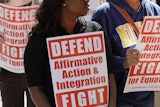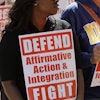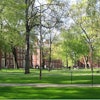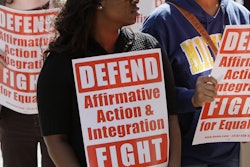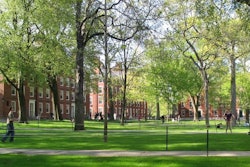NEW HAVEN, Conn. — Yale University and student groups are condemning the monitoring of Muslim college students across the Northeast by the New York Police Department, while Rutgers University and leaders of Muslim groups are calling for investigations.
The New York Police Department monitored Muslim college students far more broadly than previously known, at schools far beyond the city limits, including the Ivy League colleges of Yale and the University of Pennsylvania, The Associated Press reported Saturday.
Police talked with local authorities about professors 300 miles away in Buffalo and sent an undercover agent on a whitewater rafting trip in upstate New York, where he recorded students’ names and noted in police intelligence files how many times they prayed.
Detectives trawled Muslim student websites every day and, although professors and students had not been accused of any wrongdoing, their names were recorded in reports prepared for Police Commissioner Raymond Kelly.
A 2006 report explained that officers from the NYPD’s Cyber Intelligence unit visited the websites, blogs and forums of Muslim student associations as a “daily routine.” The universities included Yale; Columbia; the University of Pennsylvania; Syracuse; New York University; Clarkson University; Rutgers University; and the State University of New York campuses in Buffalo, Albany, Stony Brook and Potsdam, N.Y.; Queens College, Baruch College, Brooklyn College and La Guardia Community College.
An NYPD spokesman said police wanted to get a better handle on what was occurring at student associations. He cited 12 people arrested or convicted on terrorism charges in the United States and abroad who had once been members of Muslim student associations.
Police spokesman Paul Browne said police monitored student websites and collected publicly available information, but did so only between 2006 and 2007.
“Students who advertised events or sent emails about regular events should not be worried about a ‘terrorism file’ being kept on them. NYPD only investigated persons who we had reasonable suspicion to believe might be involved in unlawful activities,” Browne said.
Yale President Richard Levin said the university’s police department did not participate in any monitoring by NYPD and was unaware of it.
“I am writing to state, in the strongest possible terms, that police surveillance based on religion, nationality, or peacefully expressed political opinions is antithetical to the values of Yale, the academic community, and the United States,” Levin said in a statement.
The Connecticut chapter of the Council on American-Islamic Relations called for Gov. Dannel P. Malloy and local officials to investigate to determine the extent of the monitoring and how to prevent it from happening again.
“They’re just going out and casting a wide net around a whole community, so they’re criminalizing in a way a whole community based on their religion,” said Mongi Dhaouadi, director of CAIR in Connecticut.
A message left with Malloy’s spokesman seeking comment wasn’t immediately returned.
Rutgers University in New Jersey called for the NYPD to investigate its own activities. The Muslim Student Association at Rutgers called the monitoring a violation of civil rights.
“The Rutgers populace should openly condemn the clear violations of the NYPD, who conducted illegitimate profiling outside of their jurisdiction and breached the constitutional rights of an individual,” the Rutgers student group said in a statement.
The Association of Muslim American Lawyers called for the New York attorney general to investigate.
The Muslim Students Association of the United States and Canada expressed concerns as well.
“MSA National has always been an organization willing to work alongside law enforcement agencies to help keep our communities safe,” President Zahir Latheef said. “However, we believe that the NYPD clearly overstepped its boundaries when it began spying on average American Muslim college students who were simply taking whitewater rafting trips or innocently participating in school activities at their college or university campus.”
The Muslim Students Association of the University at Buffalo said it felt discriminated against “by this secret investigation conducted by a police agency 400 miles away.”
The student monitoring was part of a much larger intelligence operation that has put entire Muslim neighborhoods under scrutiny. The NYPD built databases showing where Muslims lived, worked, shopped and prayed. Plainclothes officers known as “rakers” eavesdropped in cafes and informants known as “mosque crawlers” reported on weekly sermons.
Since the AP began reporting on these programs in August, civil liberties groups and nearly three dozen members of Congress have called for the Justice Department to investigate. The New York attorney general has also been asked to look into it.
But calls for an inquiry have so far yielded little. The NYPD’s intelligence unit operates in secret. Even the City Council, which funds the department, isn’t told about police intelligence operations. And though the NYPD receives hundreds of millions of dollars in federal money, the Obama administration has repeatedly sidestepped questions about whether it endorses the NYPD’s tactics.
Associated Press writers Matt Apuzzo in Washington, Samantha Henry in Newark, N.J., and Rik Stevens in Albany, N.Y., contributed to this report.
